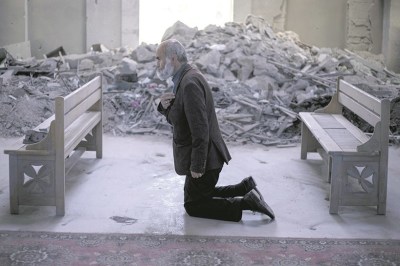What true humility looks like

Humility. That word likely stirs up many different connotations across the church. So often the idea of humility is depicted as correction, scolding, and shame that you must heap upon yourself to become lower than someone else while they prevail in a position over you, and somehow this is supposed to be a valued and desired trait. It feels much like being forced into swallowing awful medicine as punishment.
Often misunderstood and undervalued, humility is a beautiful experience without the added attributes of shame or removal of value. More accurately, humility is a profound cornerstone of Christian virtue and character. It is not merely an acknowledgment of our limitations or a willingness to learn from others, but a deep-rooted recognition of our complete dependence on God.
Humility is not about stripping ourselves of value or being removed from significance; rather, it is about choosing to allow the Lord to clothe us with a garment of grace and meekness, aligning us with the heart of the Father. It is an empowerment, not a diminishment.
Humility is about recognizing the inherent worth and dignity of every individual as a beloved child of God and treating them with the same love and respect that Christ has shown us. It is less about focusing on ourselves, our shortcomings, or our pleasure in our abilities, and more about recognizing the beauty of God's gifts of capability, acknowledging that every good gift comes from Him. After all, it is only through Him and because of Him that we even draw breath.
While humility may be perceived as drab or unassuming, it is truly a superpower and the stuff of heavenly treasure. It is the character of Christ himself, who humbled himself to the point of death on the cross for our sake. This divine humility is not a call to poverty or lack but to a different kind of greatness — one marked by service, sacrifice, and love. Consider the immeasurable reward that Christ's humility brought about through His sacrifice.
Humility does not diminish our leadership or authority; rather, it enhances it. A leader of millions can still carry the character of humility, leading with grace and compassion rather than pride and arrogance. It is this kind of leadership that truly inspires and transforms lives, reflecting the humility of Christ himself.
The apostle Paul beautifully captures the essence of humility in his letter to the Philippians, urging them to "Do nothing out of selfish ambition or vain conceit. Rather, in humility value others above yourselves, not looking to your own interests but each of you to the interests of the others" (Philippians 2:3-4, NIV). This is the call to the Church today — to soul-search, to examine our hearts and our motives, and to strive for a deeper, more authentic expression of humility in our lives.
The urgency of humility, prayer, seeking God's face, and turning from vices we have allowed into our lives as Christians is paramount in addressing the corruption and depravity that plague America today. humility is the posture we, as the body of Christ, must take, coupled with repentance, for God to heal our land.
2 Chronicles 7:14 (NIV) makes it plain. "If my people, who are called by my name, will humble themselves and pray and seek my face and turn from their wicked ways, then I will hear from Heaven, and I will forgive their sin and will heal their land." This urgent call to the body of Christ to humility, repentance, and actively and intentionally seeking the face and the presence of God for the express purpose of bringing this nation back under His protection is crucial in addressing the corruption and depravity that plague America today. He didn’t make this command to the world at large. He spoke this to His people, specifically.
It is the responsibility of the body of Christ to humble ourselves before God and seek His forgiveness, guidance, and grace in these challenging times. As His bride, we must see ourselves as an extension of Jesus, with our words, actions, attitudes, and how we spend our time reflecting Him.
May we be vessels of His grace and love in a world that desperately needs it, shining brightly as beacons of hope and transformation amid darkness and despair.
Melody Jennings is an author and podcaster who focuses on navigating psychological warfare.





















